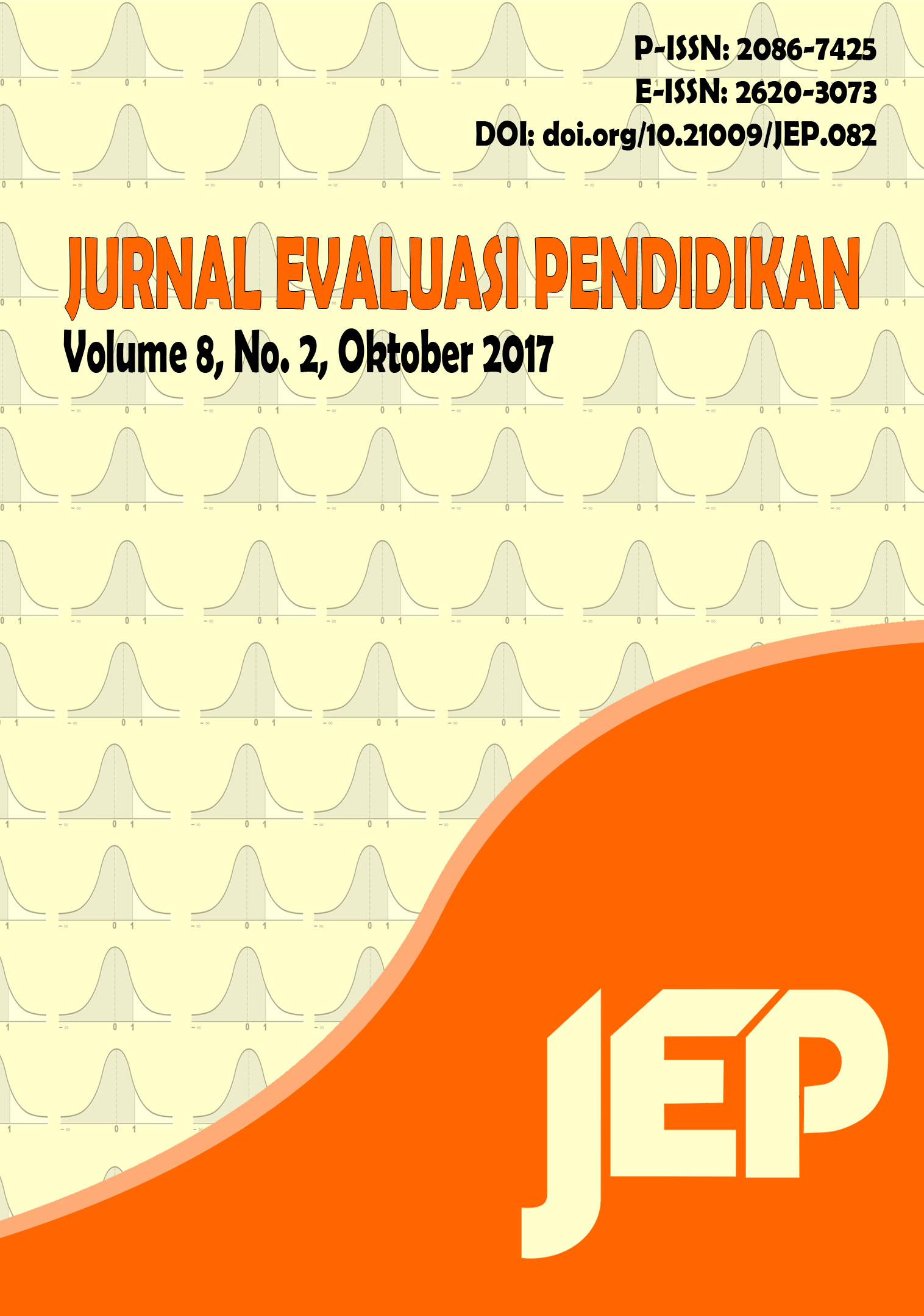EVALUASI PROGRAM PENDIDIKAN DAN PELATIHAN CALON KEPALA SEKOLAH DI KABUPATEN KAYONG UTARA PROVINSI KALIMANTAN BARAT (Studi Evaluatif Model CIPPO Pasca Pendidikan dan Pelatihan)
DOI:
https://doi.org/10.21009/JEP.082.04Keywords:
education and training, prospective principals, CIPPO modelsAbstract
This study aims to evaluate education and training programs prospective principle in the education office of Kayong Utara District West Kalimantan Province. This study used a descriptive evaluative method CIPPO evaluation model developed by Stufflebeam and his colleagues and refined by Gilbert Sax. Data were collected with instrument interview, questioner, and document study. The subject of this study is the representation of all alumni of graduates of education and training of prospective principal from 2012 to 2015 in the education offices of Kayong Utara District West Kalimantan Province. The results of this research evaluation seen from five aspects, including: 1) context, with relevant results for the legal basis, management design, and training program objectives. 2) input, related to training participants, curriculum and funding conformity with relevant results for sub aspect of program organizers with very good category (82,50%), resource persons/facilitators with very good category (79,69%), and infrastructure facilities with good category (71,74%). 3) result of process, 77,92% with very good category for time allocation, result of suitability of curriculum and teaching material with good category (74,40%), results of conformity of procedures and methods, monitoring and evaluation and process assessments relevant to technical guidelines and candidates for principals. 4) product evaluation results, related to the achievement of objectives that include competence in the form of relevant knowledge, attitudes and behavior competence with good category (83,04%), skills with good category (75,89%), and appointment as high school principle (86,30%). 5) results of evaluation of outcomes, related to program impact, that is the performance of graduates after appointment have positive effect with very good category (75,93%).







